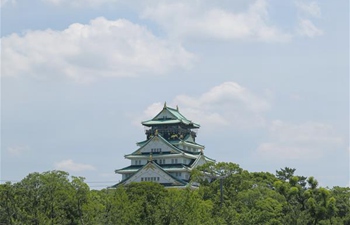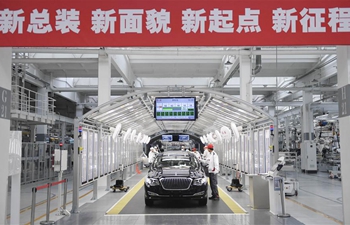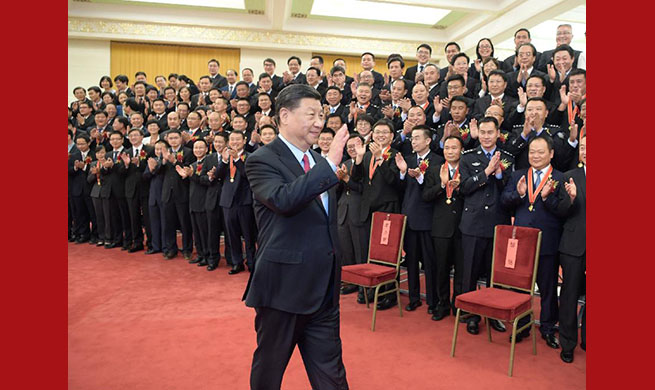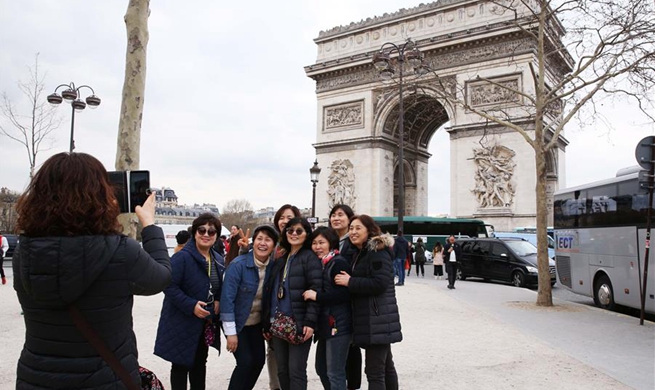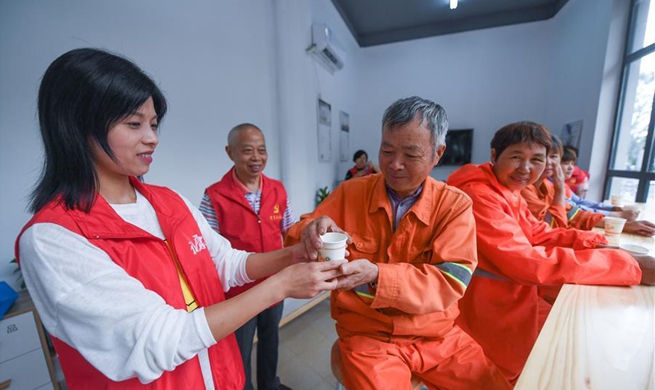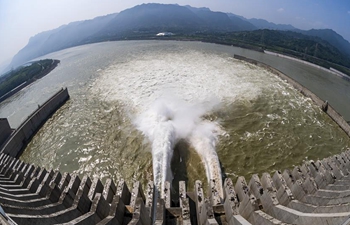MANAMA, June 26 (Xinhua) -- The U.S.-led two-day workshop over the White House's 50-billion-U.S.-dollar economic blueprint for the Palestinians closed on Wednesday in the Bahraini capital of Manama, where more than one participant highlighted political elements in parallel with the economic plan.
Christine Lagarde, managing director of the International Monetary Fund (IMF), was one of the first to drive home the significance of addressing the political situation in the region.
"Satisfactory peace" is imperative for prosperity in addition to the pressing need for "capacity development" for the Palestinians, Lagarde noted during the first panel discussion on Wednesday.
"Improving economic conditions and attracting lasting investment to the region depends ultimately on being able to reach a peace agreement," she said in a statement released later by the IMF.
"Peace, political stability, and re-establishment of trust of all the parties involved are essential pre-requisites to the success of any economic plan for the region," the IMF chief added.
As the only Palestinian attending the workshop, Ashraf Jabari, chairman of the Palestinian Business Network, called for the international support for the Palestinian cause of "establishing an independent state."
"We demand a Palestinian state on the territories occupied in 1967. This is our objective," Jabari said. "The Palestinian people would like to be independent. This stability would lead to development of business and economy in Palestine."
Meanwhile, former British Prime Minister Tony Blair reaffirmed on Wednesday his support for the two-state solution to the enduring Palestinian-Israeli conflict during his conversation with Jared Kushner, senior advisor to U.S. President Donald Trump.
"I remain a believer in the two-state solution, a believer in the legitimate aspirations of the Palestinian people for a state," Blair told Kushner. "If you can set the right political framework, then economy can start to work."
At the conclusion of the workshop, Saudi Arabian Finance Minister Mohammed Al-Jadaan described "political commitment" as one of the necessary conditions to bring prosperity to the Palestinians.
In his opening speech on Tuesday, Kushner, also main designer of the U.S. Middle East peace plan known as the "Deal of the Century," highlighted an agreed economic pathway as "the precondition to resolving previously unsolvable political situation."
He also insisted on separation of political and economic solutions to the Palestinian issue.
On Wednesday, the Palestine Liberation Organization reaffirmed its position against the U.S.-led workshop in Bahrain, saying that it lacks political and legal dimensions in the presentation of the Middle East peace plan advocated by the Trump administration.
The Palestinian Authority has been boycotting the Bahrain workshop, which was attended by a few Arab states and global financial lenders, while Israel only sent a small business delegation.
Backed by the UN resolutions and the 2002 Arab Peace Initiative, the Palestinians seek to establish an independent and fully sovereign state along the 1967 borders with East Jerusalem as its capital.





